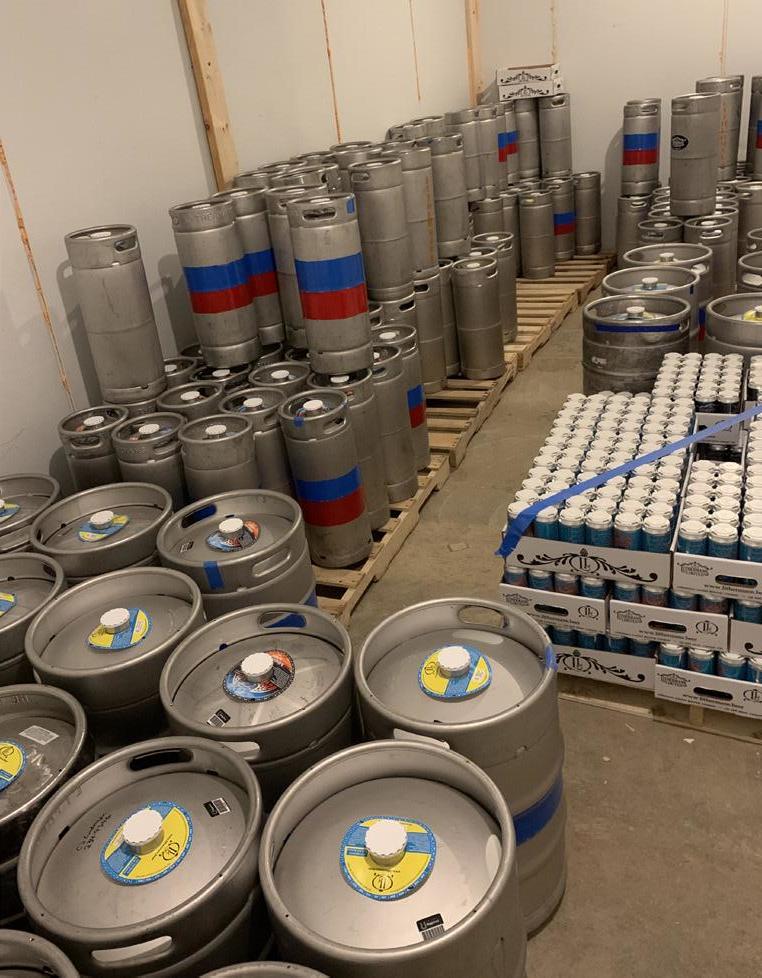
2 minute read
Breweries face revenue losses as kegs go stale
Since Gov. Chris Sununu issued his stay-at-home order and halted all dine-in services at restaurants and bars, New Hampshire breweries have struggled with the loss of the wholesale market and sales from their own taprooms, with some reporting their revenues have been whittled to 30% to 50% of their usual business.
Now, after kegs they sold in early March have languished on unused tap lines across the state for close to two months, brewers are faced with a new dilemma: many of those kegs are going stale.
The National Beer Wholesalers Association, a trade organization, estimates about 10 million gallons of beer were abandoned in March expected to be dumped as they pass their freshness date. nationwide. That’s the equivalent of about Larger brewers like 603 Brewery in 1 million kegs and could cost the industry Londonderry may be looking at about $1 billion.
“We’re not immune to this,” said Geoff Hewes, co-owner of 603 Brewery in Londonderry.
Hewes said the company will likely have to dump about 750 kegs, or about 6,300 gallons of beer, if restaurants can’t open by the end of June. That would cost about $50,000 to $60,000 in lost revenue, he said.
Gov. Chris Sununu’s executive order issued on May 1 to begin a phased approach to reopening the state’s economy would allow for some outdoor restaurant service as early as May 18. If that happens as planned, Hewes said they will still undoubtedly need to dump some beer, though likely a reduced volume.
He said it’s “too soon to say how much it will reduce, since all our competitors will be vying for the same tap lines.” Before the shutdowns, said Michael Hauptly-Pierce, coowner of Lithermans Limited Brewery in Concord, “I was doing about $10,000 a week wholesale.” That revenue channel disappeared, but he was able to sell a similar volume of beer at much lower profit margins by selling a larger volume of canned beer.
He said he has already dumped 40 kegs of beer and will likely need to dump another 40 to 80 kegs, ultimately totaling about 400 to 500 gallons.
Dumping that beer would be a loss of about $12,000 to $30,000 in revenue, depending on whether it was sold wholesale or out of his taproom.
There are alternatives to dumping spoiled or stale beer.
While the beer could technically be distilled into a consumable liquor, that is not allowed by state law, which requires liquor be made by raw material rather than a completed beverage.
At the request of the New Hampshire Brewers Association, the Liquor Commission lifted the restrictions partially and issued a circular on April 15 allowing brewers and distributors to unload stale beer to distillers for free. According to the circular, distillers would be allowed to use the stale beer only for making hand sanitizer, since this is “a time of critical need.”
After restaurants open and business starts to get back to normal, Hauptly-Pierce said brewers will be scrambling to meet demand.
“It’s going to go from zero to 100 in three seconds once we get the green light,” he said.







